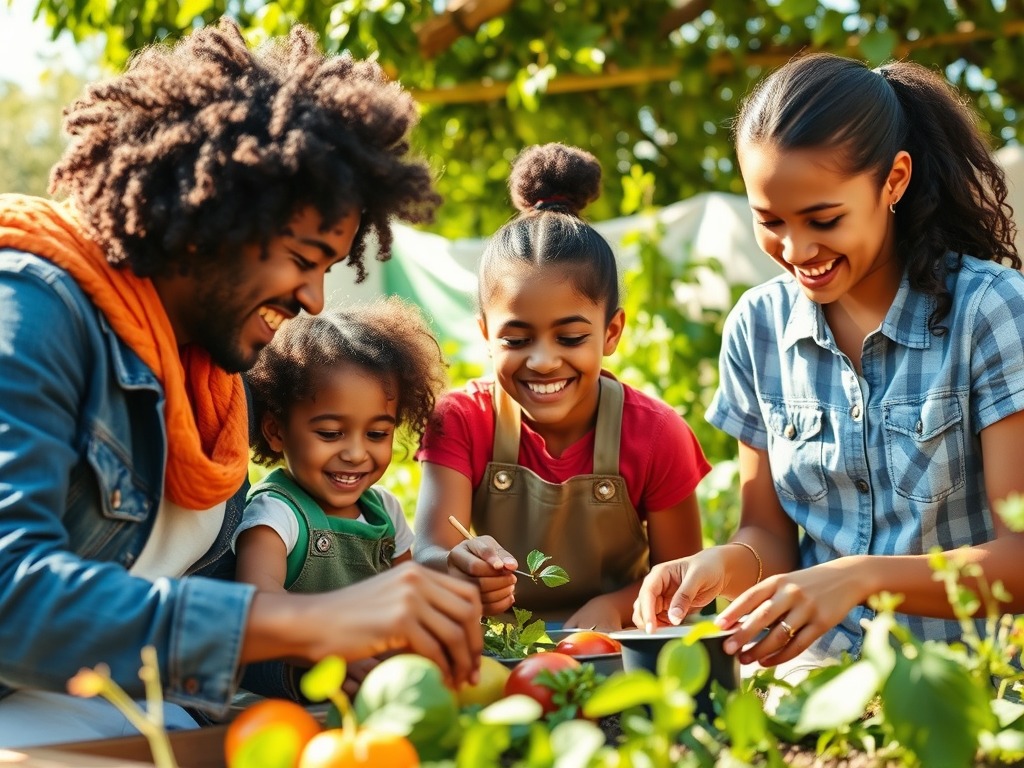
16 Jul Sustainable Lifestyle Choices for Eco-Conscious Families!
In today’s world, more and more families are becoming aware of the environmental challenges we face—climate change, plastic pollution, deforestation, and more. But awareness is just the first step. Taking action as a family can lead to lasting change, not only for the planet but also for the health and happiness of your household. If you’re looking to adopt a more sustainable lifestyle, here are some simple and impactful choices your family can make together.
1. Reduce, Reuse, Recycle – The Family Version
Most of us know the “3 R’s,” but they become truly powerful when the whole family gets involved.
- Reduce waste by avoiding single-use items. Try to buy products in bulk or without packaging.
- Reuse containers, jars, clothes, and toys. Encourage kids to get creative with crafts using old materials.
- Recycle responsibly by learning what your local facility accepts. Make it a fun sorting activity with your kids.
Bonus tip: Add a fourth “R” – Refuse. Say no to unnecessary freebies, plastic straws, and over-packaged products.
2. Eco-Friendly Eating
Your food choices have a big impact on the planet. Eating sustainably doesn’t mean giving up your favorite meals—it means making smarter choices.
- Cook more at home: Home-cooked meals reduce packaging waste and allow you to use local ingredients.
- Go meatless once a week: Meat production uses a lot of resources. Try a “Meatless Monday” with plant-based meals.
- Grow your own food: Start a small garden, even if it’s just herbs on a windowsill. It teaches kids where food comes from.
3. Mindful Shopping
Teach your children to be conscious consumers from a young age.
- Buy less, choose better: Invest in quality items that last longer.
- Support local and ethical brands: Look for companies that prioritize sustainability and fair labor practices.
- Say no to fast fashion: Opt for second-hand stores, clothing swaps, or sustainable brands.
4. Energy-Saving at Home
Small changes around the house can lead to big savings—for your wallet and the environment.
- Switch to LED bulbs: They last longer and use less electricity.
- Unplug devices when they’re not in use.
- Use natural light during the day instead of keeping lights on.
- Install a programmable thermostat to reduce heating and cooling when not needed.
Make it a game: Who can remember to turn off the most lights in a week?
5. Eco-Friendly Transportation
How we get around matters. Help your family make greener travel choices.
- Walk or bike when going nearby.
- Use public transport or carpool when possible.
- Drive smart: Maintain your vehicle for fuel efficiency and avoid unnecessary trips.
If possible, consider switching to an electric or hybrid vehicle for longer-term impact.
6. Cut Down on Plastic
Plastic pollution is a major environmental concern. Simple steps can help your family reduce its plastic footprint.
- Carry reusable water bottles, shopping bags, and containers.
- Switch to bar soaps and shampoos to reduce bottled waste.
- Choose plastic-free lunch options: beeswax wraps, stainless steel lunch boxes, and wooden cutlery are great alternatives.
7. Eco-Education for Kids
Get your children involved in the why and how of sustainability.
- Read books or watch documentaries about nature and the environment.
- Do fun science projects about energy, recycling, or wildlife.
- Involve them in eco-friendly activities like beach cleanups or planting trees.
When kids understand the “why,” they’re more likely to continue these habits into adulthood.
8. Sustainable Celebrations
Holidays, birthdays, and special occasions don’t have to create waste.
- Use reusable decorations and cloth tablecloths.
- Wrap gifts with newspaper or fabric (furoshiki style).
- Give experiences or handmade gifts instead of store-bought items.
It’s all about creating memories—not clutter.
9. Water Conservation at Home
Water is one of our most precious resources.
- Turn off the tap while brushing teeth.
- Fix leaks quickly.
- Install low-flow showerheads and dual-flush toilets.
- Collect rainwater for plants or outdoor cleaning.
Make a water-saving chart for kids and reward them for eco-friendly habits.
10. Lead by Example
Children learn best by watching. If you want your kids to be eco-conscious, show them how it’s done.
- Live your values every day, even in small ways.
- Talk openly about why your family makes sustainable choices.
- Praise your kids when they make green choices on their own.
Final Thoughts: Every Little Bit Counts
Living sustainably as a family doesn’t mean being perfect—it means being intentional. Whether you start with one change or several, what matters is that you’re doing it together. Over time, these habits become a natural part of life, setting your children up to be environmentally responsible adults.
Remember: It’s not about one family doing everything perfectly—it’s about millions of families doing something. That’s the real power of collective change.


No Comments